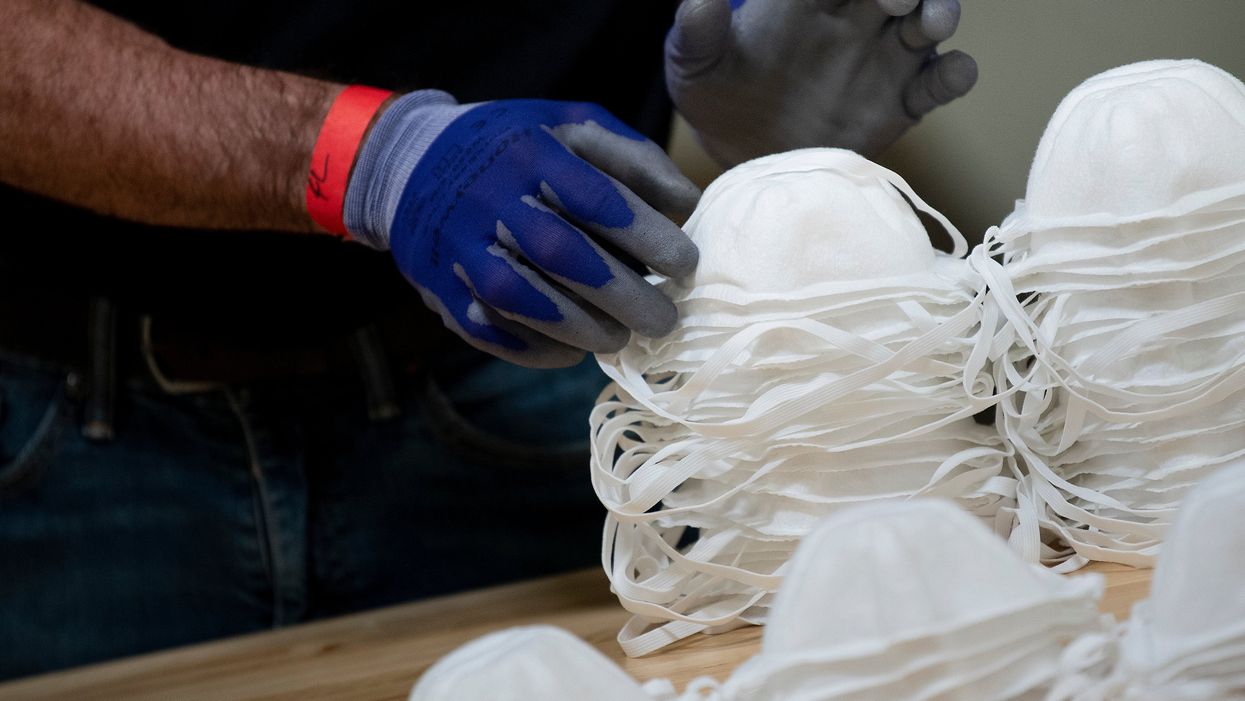
A factory worker producing face masks in America.
It was bad enough living through 2020 - and if you’re in the US you have re-live it all over again on paper right now by filing taxes.
However there is one positive. That, is the Internal Revenue Service (IRS) have classed PPE and hand sanitizer tax-deductible.
On their website, the IRS clarified that, ‘the purchase of personal protective equipment, such as masks, hand sanitizer and sanitizing wipes, for the primary purpose of preventing the spread of coronavirus are deductible medical expenses.’
It’s reasonable to expect this, as those items are the best way to protect people from spreading and catching coronavirus.
After a year of living with coronavirus, it seems that experts have been able to universally agree on what is successful in terms of protecting people from the disease.
In a bid to clarify what items are classed as tax-deductible, the IRS has compiled a list:
- PPE, including face masks, face shields, hand sanitizer, and disinfectant wipes, can be deducted as a medical expense from 2020 taxes.
- Purchases made for a spouse or dependents that are not covered by insurance can be deducted when total medical expenses exceed 7.5 percent of adjusted gross income.
- PPE purchases are also eligible to be paid for or reimbursed under medical savings accounts or flexible spending plans. Since pre-tax contributions typically fund those plans, they would be ineligible for tax deduction.
Hopefully this will help millions of Americans who have spent their earnings on protecting themselves and their loved one.
Last month, the IRS extended the tax filing deadline for the 2020 from April 15, 2021 to May 17, 2021.
“This continues to be a tough time for many people, and the IRS wants to continue to do everything possible to help taxpayers navigate the unusual circumstances related to the pandemic, while also working on important tax administration responsibilities,” IRS Commissioner Chuck Rettig said in a statement.













